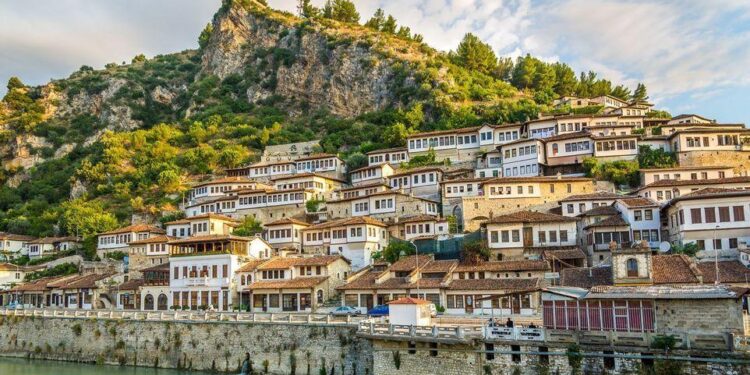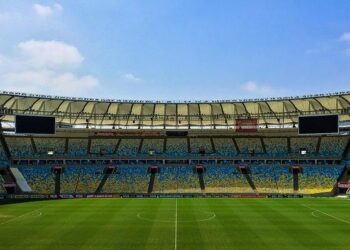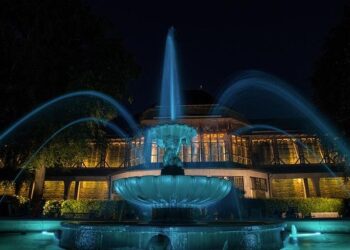The longstanding rivalry between Albania and Serbia extends far beyond the soccer field, deeply rooted in complex political tensions and historical conflicts that have shaped each encounter between the two national teams. As fans pack stadiums and eyes turn to every match, the intensity on the pitch reflects decades of unresolved issues, making these games a unique intersection of sport and geopolitics. This article explores how the fraught relationship between the neighboring Balkan nations has influenced their soccer clashes, revealing the powerful interplay of politics, history, and national identity in one of Europe’s most charged sporting rivalries.
Historical roots of the Albania Serbia rivalry and its impact on the soccer field
The tension between Albania and Serbia finds its origins deep within the complex history of the Balkans, where ethnic, religious, and nationalistic sentiments have frequently clashed. Key flashpoints such as the disintegration of Yugoslavia, the Kosovo War in the late 1990s, and the unresolved status of Kosovo have all contributed to an enduring rivalry that extends beyond politics and into cultural expressions-including sports. This animosity has been fueled by competing narratives over territorial claims and national identity, turning soccer matches into more than just athletic contests but symbolic battlegrounds for pride and historical grievances.
On the soccer field, this deeply rooted conflict manifests in heightened emotions and intense encounters, often accompanied by political demonstrations and fan provocations. Some notable characteristics of this interplay include:
- Boycotts and Walkouts: Matches have been interrupted or even abandoned due to unrest among players or supporters, reflecting unresolved political tensions.
- Security Concerns: Police presence is typically escalated during these fixtures to prevent outbreaks of violence both inside and outside stadiums.
- Symbolic Gestures: Players and fans use jerseys, chants, and banners to express nationalistic sentiments, further intensifying the rivalries.
| Year | Match Incident | Impact |
|---|---|---|
| 2014 | Abandoned UEFA qualifier due to drone incident | Match suspended; UEFA sanctions imposed |
| 2016 | Security clashes between fans | Increased restrictions on travel for supporters |
| 2018 | Protests during friendly match | Heightened diplomatic tensions |
Political tensions fueling animosity during high-stakes matches
The rivalry between Albania and Serbia on the soccer pitch extends far beyond mere competition, deeply rooted in decades of political discord and territorial disputes. Every match becomes a symbolic battleground where national pride and historical grievances come to the forefront. This intense atmosphere often ignites passions not only among players but also within the stands, where fans express sentiments shaped by long-standing conflicts and struggles for recognition. The charged environment sometimes leads to on-field confrontations and even disruptions, reflecting the weight of unresolved political tension.
Key factors that amplify animosity during encounters include:
- Historical conflicts: Memories of war and territorial division influence fan and player interactions.
- National identity: Soccer matches serve as proxy battles for cultural and political assertion on the international stage.
- Media narratives: National and regional media outlets often frame games with partisan rhetoric, heightening tensions.
- Government involvement: Political figures may use matches to bolster nationalist sentiments, further complicating the sporting environment.
| Match Year | Incident | Impact |
|---|---|---|
| 2014 | Match abandoned due to crowd violence | Increased UEFA sanctions |
| 2017 | Player clashes following political chants | Heightened media scrutiny |
| 2019 | Diplomatic tension sparked after fan protests | Temporary suspension of friendly matches |
Strategies for promoting sportsmanship and easing hostilities in future encounters
Fostering a culture of respect between Albanian and Serbian soccer fans requires deliberate initiatives both on and off the field. Football associations can lead by implementing joint community programs that celebrate the shared love of the sport while educating supporters on the importance of fair play. Emphasizing player-led gestures of reconciliation, such as pre-match handshakes and post-goal respect, sends a powerful message that transcends political divides. Media campaigns highlighting positive interactions between the two nations’ players and fans can also counteract years of hostility, creating a new narrative centered on unity rather than division.
Furthermore, stadium authorities and match organizers play a crucial role in de-escalating tensions through practical measures, including:
- Enhanced security protocols that prevent confrontations without overshadowing the fan experience.
- Fan dialogue forums before and after matches to encourage mutual understanding.
- Strict enforcement of bans on hate speech and offensive displays.
| Strategy | Expected Outcome | Lead Stakeholders |
|---|---|---|
| Joint Community Programs | Improved fan relations | Football Federations |
| Player Reconciliation Efforts | Positive public image | Teams & Coaches |
| Strict Security Measures | Reduced incidents of violence | Stadium Authorities |
| Fan Dialogue Initiatives | Increased mutual understanding | Supporter Groups |
Insights and Conclusions
As the Albania-Serbia soccer rivalry continues to unfold on and off the field, it remains clear that the deep-rooted political tensions and historical conflicts between the two nations extend far beyond the sport itself. Matches between these teams are charged with national pride and serve as a vivid reminder of the complex relationship shaped by decades of dispute. Understanding this rivalry requires more than just a look at the scores-it demands recognition of the broader social and political context that defines one of Eastern Europe’s most intense football confrontations. As future games take place, both fans and players alike will continue to navigate a highly charged atmosphere where sport and politics are inextricably linked.
















